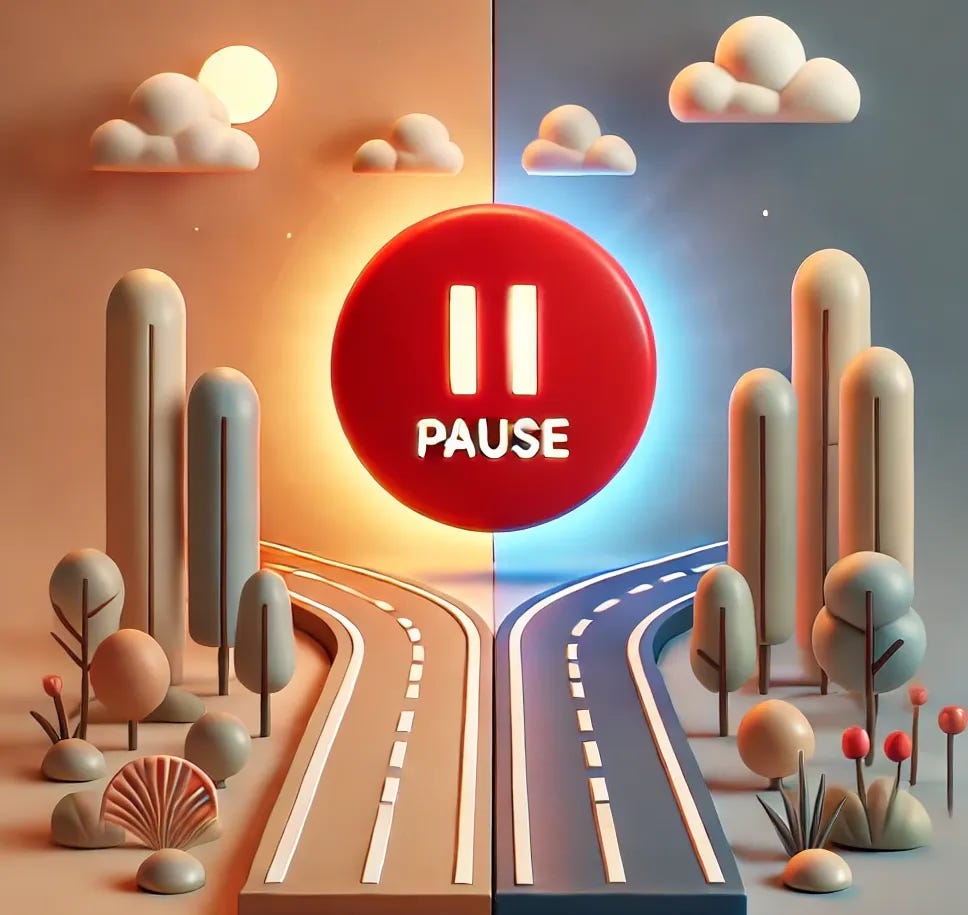Press Pause
Why We Should Seek to Check the Facts
Has someone ever said something to you that made you feel some type of way? In moments of frustration or confusion, it’s easy to let our emotions take control. We react quickly, convinced we understand the situation. We've all been there—someone says something, and immediately, we feel a certain type of way. Before we know it, we're deep in our thoughts, replaying the story over and over again in our heads. But here's the thing: those stories are often incomplete or even incorrect. That's why it's so important to start checking the facts.
Checkout the latest Glow and Flow video —"Checking the Fact" Here
The Power of Pausing
Recently, I had a conversation with a friend who let me know that they felt some type of way about how I handled a situation. At first, I was ready to explain myself and move on, but something told me to slow down and listen. It took a series of questions for us to get on the same page—questions that required both of us to seek understanding rather than jumping to conclusions.
They asked about my intentions, and I asked about how my actions impacted them. What we discovered was that neither of us had the full story at first. It wasn't until we paused to check the facts that we were able to have a healthy, productive conversation.
But the truth is, not all my interactions go that smoothly. More often than I’d like to admit, I get caught up in my feelings and stop there. I assume the story I’m telling myself is the whole truth, and I carry on feeding that narrative. Sound familiar?
What Does It Mean to Check the Facts?
When I say “check the facts,” I’m not talking about dismissing your feelings or ignoring your emotions. On the contrary, recognizing how we feel is important. But checking the facts means we go beyond our initial emotional response to look deeper.
Here’s how I break it down:
Acknowledge your feelings: Your emotions are valid. They tell you something about the situation. But they aren't the whole story.
Ask yourself if your story is complete: Could there be more to this? Is it possible that your perspective is only part of the equation? What are the facts, and where might there be gaps?
Seek understanding: Instead of rushing to conclusions, ask questions that help you truly understand what the other person meant and how they felt. This is key to building better communication.
Make an informed decision: Once you have all the facts, decide what you want to do with the information. You may still feel hurt or frustrated, but at least now you're responding from a place of clarity rather than assumption.
Why This Matters
The stories we tell ourselves can either liberate us or keep us stuck. When we don't check the facts, we risk making decisions based on half-truths. We react instead of responding thoughtfully. We assume the worst when there might be more to the story.
This habit of checking the facts is a powerful tool for personal growth and healthy relationships. It allows us to move beyond our feelings and make decisions that are grounded in reality.
The Challenge
So, here's the challenge I’m throwing out today: the next time you feel triggered by something or someone, pause and check the facts. Ask yourself: Am I acting on complete information, or is there more to the story?
By doing this, you'll find that your relationships—whether with friends, colleagues, or even yourself—will become healthier, more balanced, and based on mutual understanding.
If this resonates with you, share it with someone who might need to hear this message today. Let’s get unstuck and grow together.
Until next time, peace and growth!


